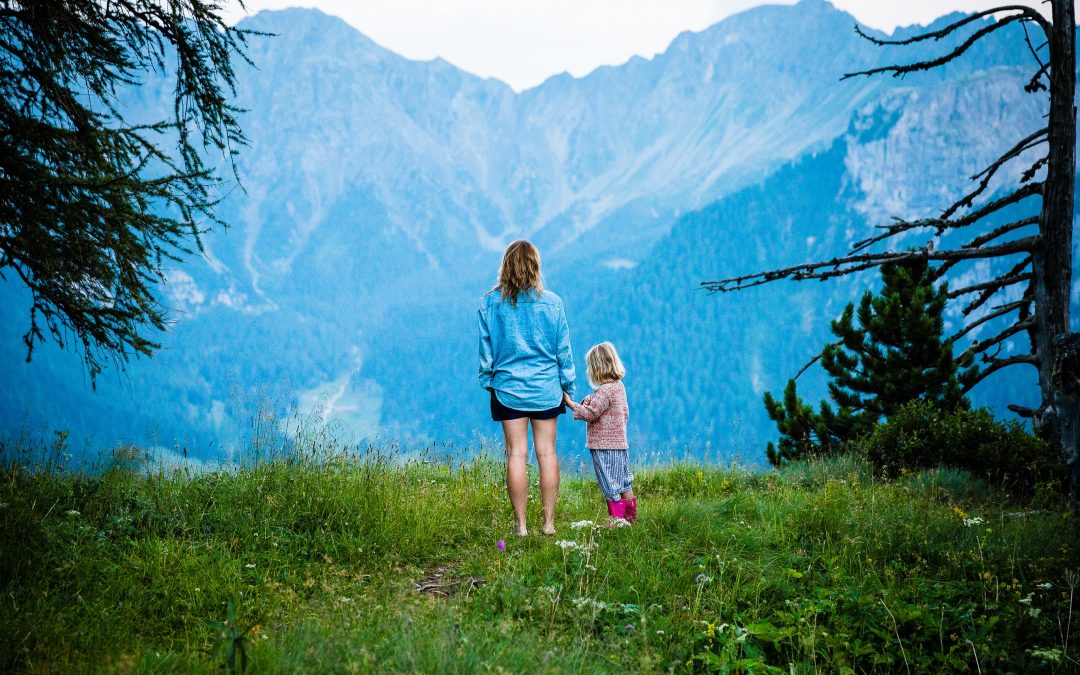I’ve just given a short talk to a corporate audience at a daylong online conference. I was invited to help close out the day with some provocative thoughts. And still, it felt risky and brave.
Here’s the description of the session, as it was given to me:
This discussion will look ahead and try to imagine a world that has truly arrived at stakeholder capitalism at minimum, or a just and regenerative economy at best. Speakers will offer pathways to getting us there, along with suggestions for highly effective levers of change we need along the way.
Here’s what I said (roughly scripted to make sure I stayed under 10 minutes):
You’ve asked me to share some provocative thoughts to send people off at the end of the day – thoughts about “pathways to stakeholder capitalism at a minimum and a just and regenerative economy at best.” First, though, I want to offer a little background about my own journey and the work I do now as a way to illustrate that pathway.
I started my career in brand strategy, working internationally for HJ Heinz and then for Coca-Cola. And I’ll tell you: it was deeply disillusioning. I felt that there was something really important missing in how we think about the relationship with customers and community. But I couldn’t put my finger on just what was missing, and everyone else seemed to think things were just fine. So I decided to leave marketing and move into employee engagement and organizational culture. But again, it was disillusioning. Again, I felt that something was missing – this time in how we think about our relationship with employees. It was around that time that the sustainability movement really started to gain visibility, and again it seemed clear: something was missing in how we think about our relationship with the world around us.
What I eventually concluded was that we have a dominant guiding story in society that tells us everything operates like a machine, especially our organizations. It tells us that we’re separate from each other, separate from nature, separate from our organizations. That we exist to compete and consume. And that profitability and productivity are the only things that matter. That’s the dominant worldview that shapes every aspect of our lives, from education to healthcare to agriculture and maybe most of all, business. It’s a fundamentally mechanistic and reductionist, even extractive, worldview. And I believe that every major problem we face in society can be traced back to the limitations of that story.
Twenty years ago, I went in search of the rest of the story – in search of a worldview that also included life. In particular, I researched biology to understand what it takes for anything that is alive to thrive. At the same time, I dove into the organizational literature to understand what it takes for an organization to thrive. And I found a core set of patterns or characteristics common to all of them. These are the fertile conditions that have to be cultivated if anything alive is to thrive. I went further into the research and developed a consulting framework around those patterns. And after working with them in a range of organizations and industries for 15 years, I published a book called The Age of Thrivability.
Sometimes I do talk about this work as a pathway to a just and regenerative society. But more often I talk about “thrivability.” And I define it as “the informed intention and practice of enabling life to thrive” at every level: for individuals, for the organization as a dynamic living ecosystem, for customers, community and biosphere. Informed, because if we’re going to enable life to thrive, then we need to know what life requires. Intention, because we’re currently setting our sights on something far less than life’s ability to thrive – things like profit and productivity, which aren’t bad in themselves, but if that’s the extent of our intention, then we’re going to continue to get something catastrophically less than thriving. So it’s vital that we make it our explicit intention to enable life to thrive. And finally, practice, because this work of enabling life to thrive is not a certificate or a program. It’s a lifelong practice, an individual and collective practice of deepening in wisdom and compassion and the ability to sense what’s needed and to respond with effective action. So that’s what I’ve dedicated my work and my life to – inviting people into this informed intention and practice of thrivability.
I started by working with individual companies. But eventually, I saw that that wasn’t enough. I realized that this needs to be an industry-wide conversation, in every industry. Because not only is it about system change, it’s about collective wisdom and discernment and imagination. It requires multiple experiments and shared learning. And it takes more courage than most people and most companies have on their own.
For example, I’m working now with the tourism industry in two separate countries, in each case in an ongoing multi-stakeholder process of conversation and learning and experimentation. At the heart of it is a shift away from the mechanistic, extractive goal of simply growing the tourism industry as if it’s a conveyor belt that exists only to pass as many people through a destination as possible and shake as much money loose from their pockets as possible along the way. It’s shifting away from that towards nurturing and cultivating the hosting communities. The language shifts from “the tourism industry” to “the hosting community.” And the work shifts towards helping them discover who they are together, what they care about, how they can care for their place together, and what kind of experience they want to offer that will be nourishing to visitors and also to themselves and to their place. That then shifts how national tourism organizations see themselves from purely destination marketing offices to seeing themselves as hosting the hosts. It’s a rethink of their role and their goals and even of the skills that are required.
Here’s where I want to say: stakeholder capitalism is a dangerous concept. It sounds so comforting, like a meaningful advance. And maybe it is, in some ways. But it’s also still stuck in the very short list of whose lives matter. It’s still reductionist. And it’s still stuck in putting capital at the center of the conversation. It asks: how do we generate money for some few as the primary focus of our efforts, and how can we add a few more players to the short list of beings that we won’t do direct and active harm to in the process? But who gets included on the list? The pandemic has shown us that it’s harder and harder to draw a hard line around any of our activities and say: what I do only affects this short list of “stakeholders,” and so I will only consider them.
My point isn’t that generating money is bad. But making that the primary goal is.
What’s needed is a far bigger, more important, more courageous conversation.
There’s the saying: where there’s a will, there’s a way. And apparently, judging by our collective action so far, there isn’t the will to do what’s really needed to avoid extinction, otherwise we would have found the way. To me, the full version of the saying is: where there’s an aligned worldview, then there’s the will and there’s a way. But our worldview now tells us that money is the most important thing and that a short list of stakeholders are the only ones we need to be concerned about. That worldview blocks us from having the will to find a way to avoid extinction. It blocks us from being able to imagine a way to do that. Until we actively, collectively replace that worldview in each of our own contexts, then we’ll never find the will or the way to get to a just and regenerative society.
So my first piece of advice is: start by paying attention to the language you use. See what more becomes visible, what more seems possible when you shift from using mechanistic terminology, like leverage and capital, to using organic language like cultivate and fertile conditions and thriving.
My second piece of advice is: create spaces and conversations where you can shift from thinking like a capitalist and start thinking like a mother. A mother knows that money is an important part of managing the household, but it’s not the purpose of managing the household.
And third: like my tourism clients, ask: how can our sector be a pathway to a just, regenerative society? How can it be a force for healing and regeneration?
The last thing I want to say is: if we’re going to talk about stakeholders, then let’s also talk about what’s at stake. My daughter said to me two days ago that she heard the expression “climate apocalypse” for the first time and it really upset her. It upsets me, too. What’s needed is the equivalent of that WWII mobilization, where everyone comes together to reconfigure what gets produced and how, and who to partner with. I struggle to see how we’ll get there with a focus on stakeholder capitalism. From what I can see, we need to put a just, regenerative, society – and life’s ability to thrive – at the center of our most courageous conversations.
[If you appreciated this article, please consider subscribing to receive future posts by email.]





Wonderful article. Such a nice read. Inspiring, thought provoking. I am very interested in how we can rethink the language we use in many different facets and contexts. Managing house-hold relationships can show us a better way to manage business relationships! Dynamic ecology of stake-holders!
Thanks Michelle.
A new fan. ☮
-Nate Peyman
this is awesome Michelle… and we need this ten minutes of speaking/listening to cascade rapidly to be heard by multiple audiences, to get all communities of interest and communities of place, all cultures, all interests to share their stories, to initially be heard and without judgement and then for the shared un-thinking, the re-purposing of being and doing as a ‘human beings’ – ethically, ecologically and regeneratively…. thank you for getting this underway… Alan
Such an important conversation to cultivate! I actually heard Oprah and Marianne Williamson refer to “thinking like a mother” and it resonated deeply with me. Thank you for this.
Michelle, I totally agree with you. Albert Einstein famously said: “We cannot solve our problems with the same thinking we used when we created them” If that’s true, how are we going to address the existential threat posed by accelerating global warming? Does it mean that we have to experience a radical transformation of both inner and collective consciousness in order for us all to come together to bring about the radical outer transformation necessary for our long-term survival and thriving? Does it mean we have to find a totally different way to relate with nature and with each other? If you’re interested in learning more about and participating in this process, please contact me.
Terminology is important and changes over time. These comments are relevant to the stakeholder capitalism which has existed over most of the past 40some years. I would contend that there were, and are, some, myself included, who perceive stakeholder capitalism much more broadly, including the nature of the nurturing mother. As partner to CEOs and CFO of companies since 1986, my maxim was to maximize long-term stakeholder wealth. The key points here would be “long-term” and “stakeholder”. Stakeholders include stockholders, but also include employees, customers, suppliers, and the community (local, regional, and global). My decisions may not necessarily have maximized short-term stockholder wealth, but led to long-term growth, across all aspects of stakeholders, and to increasing stakeholder wealth by billions of dollars. My perspective on stakeholder capitalism does lead to a just and regenerative society not unlike Michelle Holliday’s guidelines of “thinking like a mother”.
Preach it! Good stuff. Jack Henrie brings some balance to the conversation here. It’s one thing to ask a CEO to think like a mother, but in practice it takes fundamental structural change to invite stock corporations into the social purpose “regen” spectrum. The standard C-corp (or Limited corp) is bound by law to maximize shareholder wealth. If a director prioritizes other things (social, etc.), they can be sued. Like a mother provides a safe place for kids, so we need innovative new corporate legal forms, like the Canadian C3 and California SPC and UK CIC — which allow directors to legally prioritize multiple stakeholders. And from there, we need to invite corporations to move even further into the social spaces, with ESOPs, Cooperative formats, and so forth. Structure guides practice, not visa versa.
Thank you Michelle!
Your emphasis on language is much appreciated! A couple of decades ago I read George Lakoff’s, Metaphors We Live By, and since then I’ve undertaken to eliminate mechanistic metaphors from my vocabulary. I don’t have gears, so I shift my focus instead. My own coaching and consulting work has long focused on creating the conditions for my clients and their organizations to flourish rather than attempting to control behaviors. I encourage my clients to take up gardening, to have the first-hand experience of creating the conditions for sustainable growth, to learn the cycles of planting, germinating, growing, the need for pruning and weeding, harvesting, composting and regenerating in ways that are real and not simply metaphoric.
Like you, I have been horrified at the hold that concept of homo economicus has on the minds of policy and decision makers in gov’t and business, their disconnection from the natural world and their thralldom to the hyper-masculine idea that life is a constant battle for supremacy instead of a dance of collaboration. As Ursula Le Guin pointed out:
“The law of evolution is ‘that the strongest survives!’ Yes, and the strongest, in the existence of any social species, are those who are most social. In human terms, most ethical… There is no strength to be gained from hurting one another. Only weakness.”
I love the elegant simplicity of thinking like a mother and I wonder how to make it palatable to what I think is a significant portion of the male population – especially, those who are young, unmarried, and not fathers – whose lives have been shaped by the advertising culture and the constant drumbeat to be better than everyone else and never show weakness or admit a failure.
Do you have any thoughts on that?
You are so right. Away from gains for a few, onward to sharing what earth provides, away from ratraces focusing on your own survival at the cost of others, onward to shared survival, maybe that before thriving if that is against happy few thing.
Happy all, is what we should focus on.
Putting away the eyeglasses that focus on shortage (thus needing to fight), replacing them with the eyeglasses that focus on abundancy.
The world is an abundant place, but we look at it with the wrong glasses on.
A wonderful article Michelle (no doubt), the challenge is – will those who need to read this be reading this? If now – how do we make that conscientiousness and reality check happen?
Thank you for all these wonderful, encouraging comments!